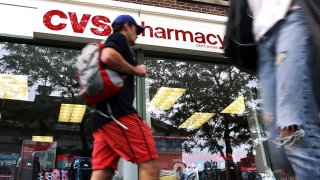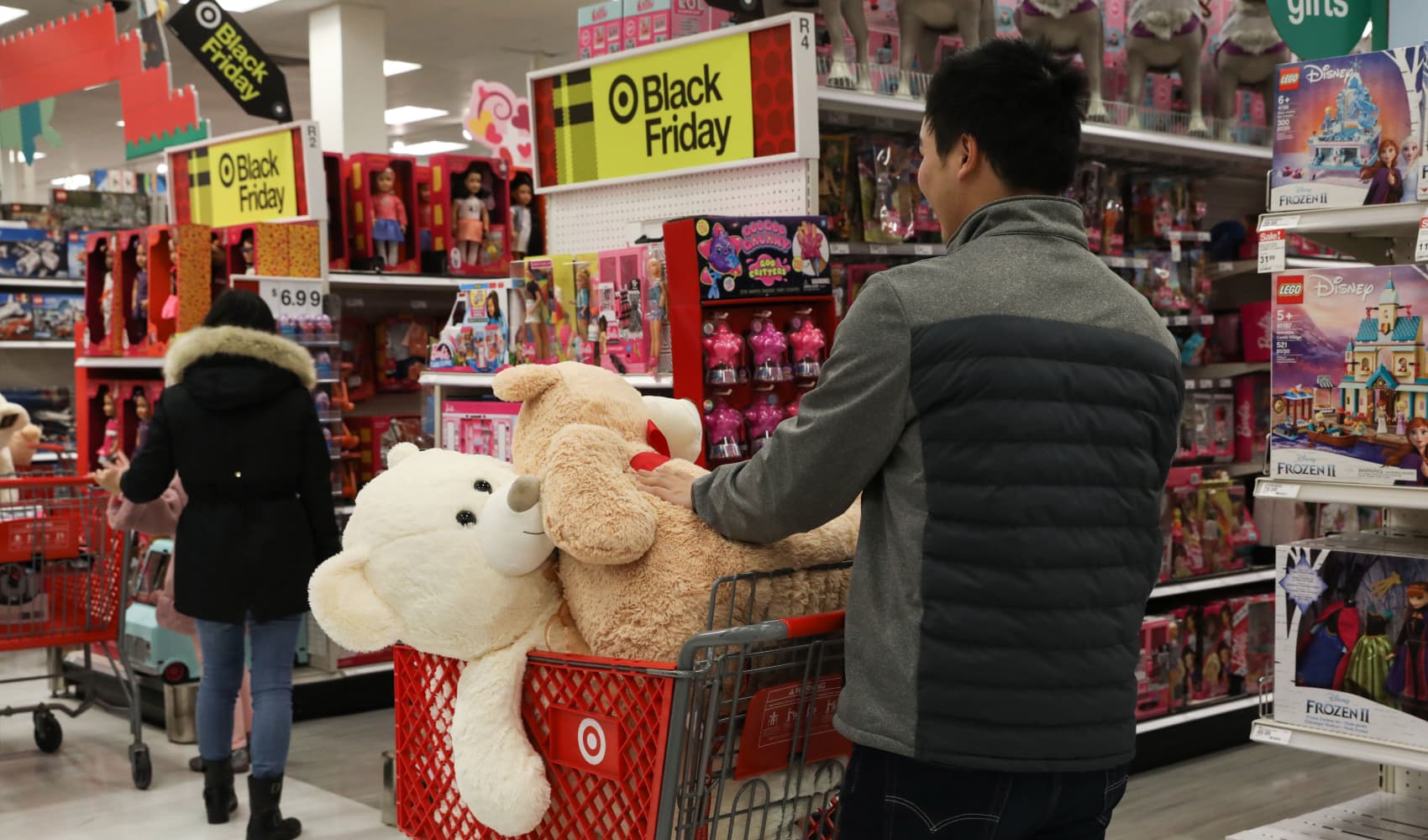
- CVS Health said Thursday that it will close about 900 stores over the next three years, as it adjusts to shoppers who are buying more online.
- The drugstore chain said it will focus more of its efforts on digital growth and turning its stores into health-care destinations.
- Store closures will start in spring 2022, the company said.
CVS Health said Thursday that it will close about 900 stores over the next three years, as it adjusts to shoppers who are buying more online.
Shares rose 2.81% to close at $95.34. With the day's gains, CVS shares are up about 40% this year, bringing its market value to $125.81 billion.
The company announced in a news release that it will focus more of its efforts on digital growth and turning its stores into destinations that offer a range of health-care services, from flu shots to diagnostic tests.
Store closures will begin in spring 2022. The company said it plans to close about 300 per year. In total, the closures will add up to roughly 9% of CVS' nearly 10,000 U.S. stores. The company declined to share the specific locations of stores that will shutter.
CVS did not say how many employees will lose their jobs because of the closures, but said it will help those who are impacted find a different opportunity or role at another location.
CVS is shaking up its business as the Covid pandemic accelerates changes in consumer behavior. More people are getting prescriptions filled online, retrieving personal care items through curbside pickup and visiting with doctors through telehealth. The drugstore chain and health insurer said it is closing the stores based on changes to the population, customer habits and health needs.
Money Report
Yet CEO Karen Lynch said stores will still play a key role.
Get a weekly recap of the latest San Francisco Bay Area housing news. Sign up for NBC Bay Area’s Housing Deconstructed newsletter.
"Our retail stores are fundamental to our strategy and who we are as a company," she said in a news release. "We remain focused on the competitive advantage provided by our presence in thousands of communities across the country, which complements our rapidly expanding digital presence."
Three different kinds of stores
CVS has been in the middle of an effort to turn more of its stores into health-care destinations, which could drive more foot traffic and drum up more claims for its insurance business. It already has about 1,100 MinuteClinics, which provide urgent care for common illnesses like strep throat or administer flu shots.
One store format called a HealthHub has been expanded. These locations sell a wider variety of medical products, offer more services from therapy appointments for mental health to screenings for chronic conditions and have other wellness features like rooms that can host yoga.
The company has said it plans to have 1,000 HealthHub locations by the end of the year.
CVS said it plans to use three different store formats. One group will offer primary care services. Another will become HealthHubs. And a third will remain traditional stores that fill prescriptions and sell items from shampoo to milk.
Stores will also be further integrated into its health insurance business, Aetna, which it acquired in 2018. Some of its benefits plans encourage Aetna members to seek care at CVS stores, like going to its MinuteClinics for no or a low copays.
It also owns prescription benefit management subsidiary Caremark.
CVS spokesman T.J. Crawford said along with reviewing store density and market dynamics, the company decided which stores would stay open or close based on the number of people with Aetna and Caremark coverage nearby. He said it also considered the needs of underserved communities.
'Stuck in the past'
CVS has outperformed its drugstore competitors on Wall Street, as its health-care acquisitions and focus attract investors. Its stock is up about 40% this year, outpacing the 32% growth of the S&P 500. The shares hit a 52-week high of $96.57 earlier this month.
Yet the entire drugstore industry has been hit by disruption, as retail giants including Amazon and Walmart — and even discounters like Dollar General have cracked into health care and chased market share.
That competitive landscape has forced CVS and its competitors, Walgreens Boots Alliance and Rite Aid, to take a hard look at how they can stand apart and stay relevant. During the pandemic, they have gotten a sales boost as consumers turn to stores for Covid-19 tests, vaccines and more recently, at-home test kits — and sometimes toss other items in the basket, too.
Neil Saunders, managing director of GlobalData, said the high number of CVS store closures is a natural consequence of the company's own making. He said it has "neglected stores for far too long and has pushed some of them into the downward spiral of irrelevance."
"The retail side of CVS's business is shabby," he said. "Too many stores are stuck in the past with bad lighting, depressing interiors, messy merchandising, and a weak assortment of products. They are not destinations or places where people go out of anything other than necessity."
As CVS lets stores languish, he said Target, Walmart, Ulta Beauty and Sephora have stolen some of its business away. Now, more shoppers go to those retailers' stores for makeup, lotion and cold medication instead, he said.
To turn things around, CVS must clean up its act, he said.
"Their future relies on proper investments being made in both retail and health-care services," he said. "And it is no good simply investing in health services if the environment in which they are presented is poor: consumers have choice and will simply take their business elsewhere."
Shaking up leadership
CVS said it expects to record an impairment charge of between $1 billion and $1.2 billion, or 56 cents to 67 cents per share, in the fiscal fourth quarter tied to the planned store closures. The write-down covers the cost of operating leases, property and equipment.
As a result, it expects fiscal 2021 earnings in the range $5.46 to $5.67 per share. It previously forecast earnings of between $6.13 and $6.23. Its adjusted earnings per share guidance remains the same, since the impairment charges will not be factored into those results.
CVS is also changing some of its leadership roles. It has created a new role, chief pharmacy officer, and named Prem Shah to the position. Shah and Michelle Peluso, chief customer officer, will become co-presidents who will lead the two parts of company's retail business — the front of the store and the pharmacy. Both will report to Lynch, who stepped into the top leadership role in February.
Neela Montgomery, president of CVS Retail/Pharmacy, will leave the company at the end of 2021.






